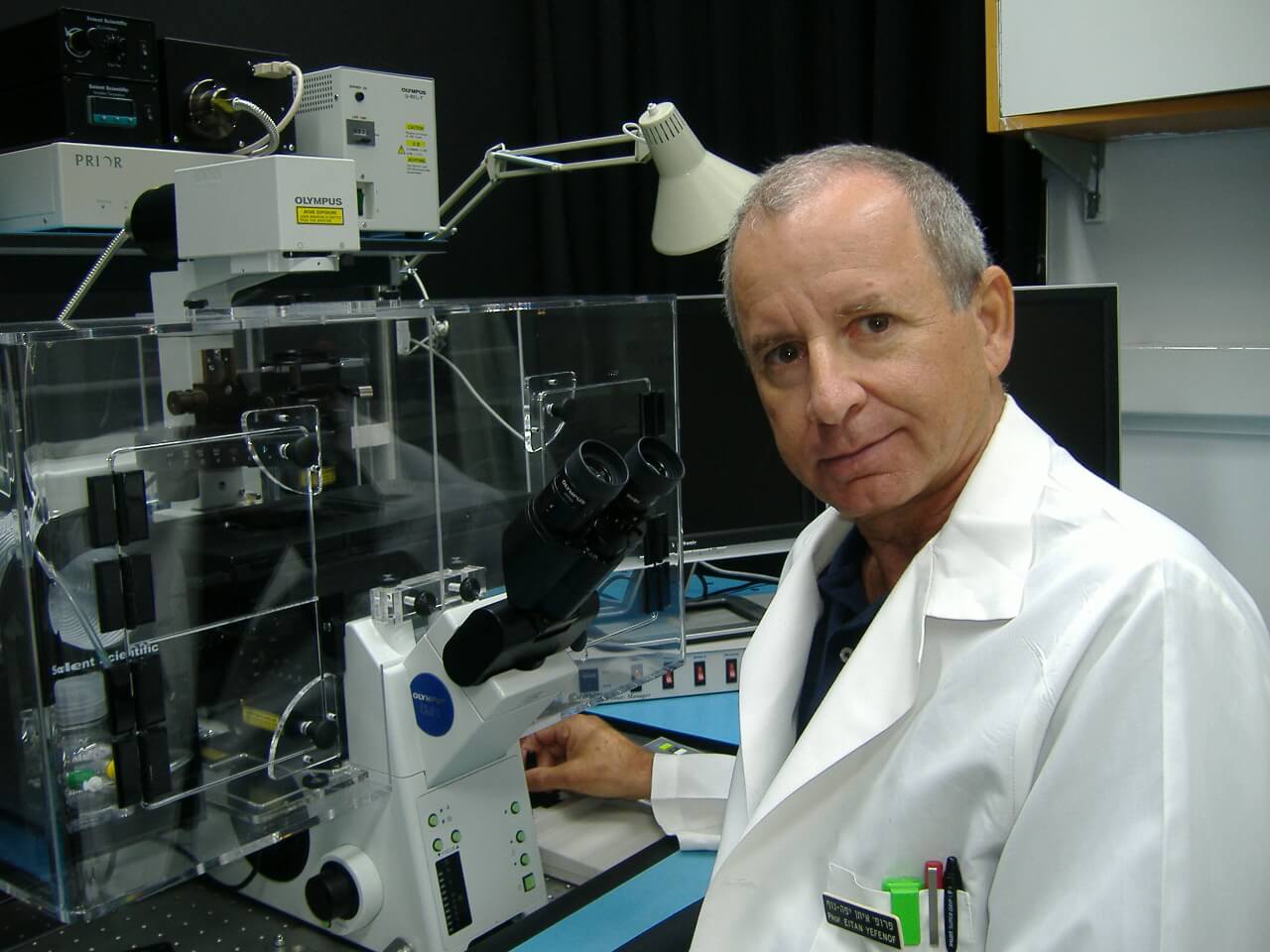This is what Prof. Eitan Yaffe Nof, from the Institute of Microbiology at the University's Faculty of Medicine and a researcher of the immune system, says in an interview with the scientist website following the winning of Professors Gilles Hoffmann, Bruce Beutler and Ralf Staymanen with the Nobel Prize for Medicine

"For many, many years there has not been a Nobel Prize in the field of immunology, certainly not in this field of the innate immune response, so I think that this prize brings this specific field back into the spotlight, because it is very important in the development of drugs against polluting factors for which there are currently no good antibiotics or good vaccines. "
This is what Prof. Eitan Yaffe Nof, from the Institute of Microbiology at the Faculty of Medicine of the Hebrew University, says in an interview with the website Hidan. Prof. Yaffe Nof is a researcher from the Department of Immunology and an expert in mechanisms of T cell selection and differentiation, growth and apoptotic death (Wikipedia), factors that induce dormant cancer and more. BTraces of Professors Bruce Beutler and Ralph Steinman winning the Nobel Prize for Medicine It was announced by the Nobel Prize committee today at noon.
"The immune system is not such a simple system, but in order to explain its operation, we will reduce it to two main branches - the inducible - specific immune system, the most well-known manifestation of which are the antibodies. These appear in the blood a short time after the body is exposed to a bacterium or virus and the antibodies uniquely attack the polluting agent. It has several other components, mainly T cells."
"Besides the specific innate system, there is another arm: the innate immune system. This system works regularly without the need for prior stimulation and it also works non-specifically. It does not recognize the bacteria in a unique way but reacts towards all bacteria and all parasitic viruses. Most research in immunology has focused on the first system. In recent years it has become clear that the second system - its counterpart - is of great importance, perhaps even greater than the innate immune system. These three researchers made a significant contribution to deciphering the molecular mechanism of this system."
Are the discoveries related to each other?
Prof. Yaffe Nof: "The discoveries are related to each other: even though each researcher was engaged in his own specific field, all three studies connect in the end like pieces of a puzzle. Jules Hoffman discovered in fruit flies (Drosophila) a protein that is a receptor known as TOLL. Flies do not have antibodies and neither does any other form of specific induced immune response. And yet they know how to protect themselves from infections. They do this using the TOLL protein. It is a receptor found on the surface of the cells that recognizes the contaminating bacteria and activates neutralization and destruction mechanisms. Butler discovered that such a protein also exists in mammals, including humans, and therefore called these proteins in mammals TLR - Toll Like Receptor - receptors that are similar to those in flies. These receptors work the same way in humans as well. Although mammals, including humans, have the specific immune system, another system works alongside it that is much older in the evolutionary tree because it also exists in more primitive creatures. The third researcher, Ralph Steinman, discovered cells called dendritic cells that express these receptors and perform the neutralizing functions I mentioned earlier in the context of flies. In the end, the three studies connect to one story."
Why did they get a quarter of the prize and he got half?
"These are considerations of the committee, because Ralph Steinman is identified with one discovery - the dendritic cells and Beutler and Hoffman are identified with the identification of TOLL - this in flies and this in humans."
What connections do you have with Nobel laureates?
"I have working relationships with them, professional relationships. A few months ago we recruited a young senior lecturer to our department, Micah Berger, who was for five years a postdoctoral student with Bruce Beutler in La Hoya, California."
Prof. Yaffe Nof points out that with this win, the high rate of Jewish Nobel Prize winners is maintained this year as well, as all three winners are Jewish.

2 תגובות
Does anyone know if among the winners of the Nobel prizes for medicine and physics there are Jews?